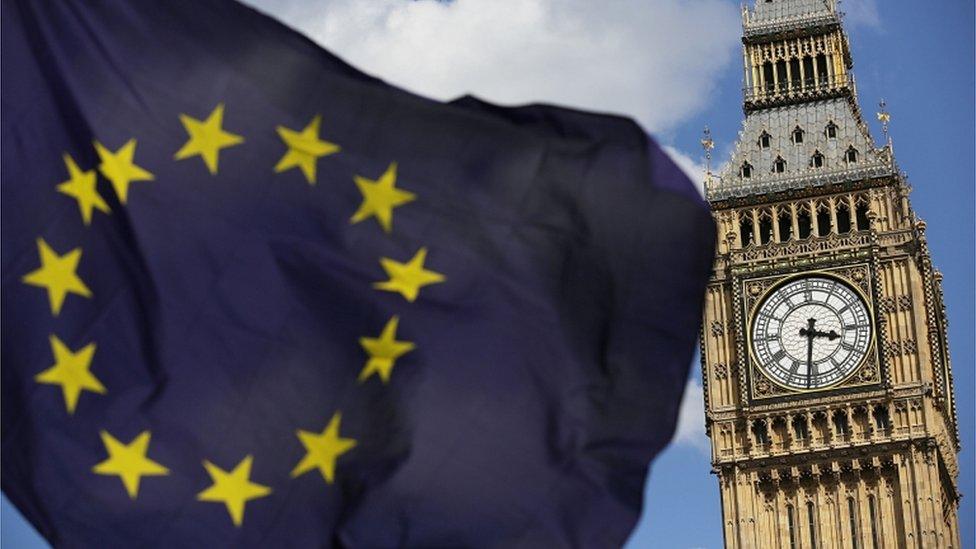What are Brexit Britain's trade options?
- Published
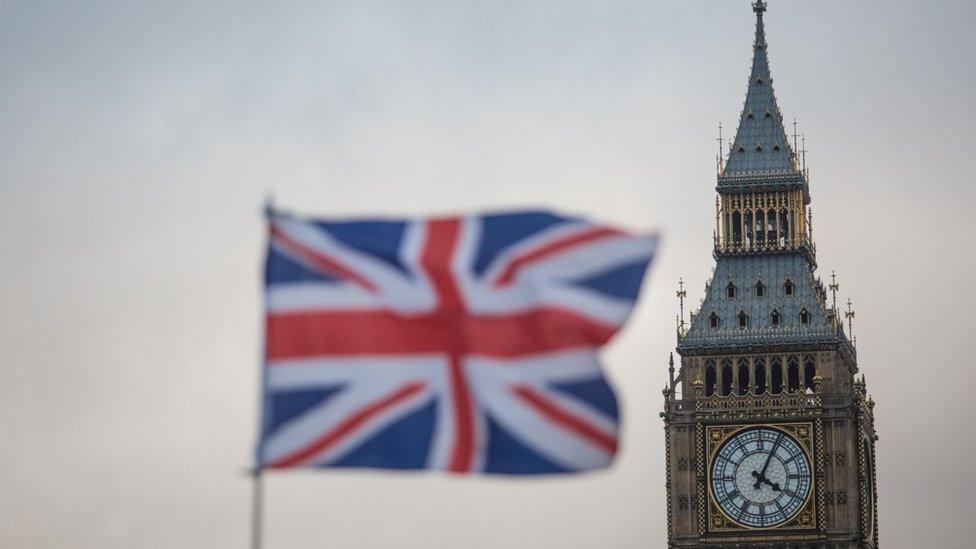
With Article 50 now finally triggered, what are the options for the UK's negotiators when it comes to trade?
Well, for a start the government seems to have ruled out the two deals which were most popular with much of British industry, staying in the single market and/or staying inside the EU's customs union.
The government ruled out staying in the single market because it is intent on reducing and controlling immigration and being in the single market involves accepting the free movement of people.
While if the UK were to stay inside the customs union, it would not be able to negotiate its own trade deals.
That really only leaves two options for the UK to negotiate: a bespoke free trade deal with the EU, or failing to reach such a deal and instead falling back on our membership of the World Trade Organization (WTO).
Exemptions
Although even members of the cabinet seem divided on the issue - with International Trade Secretary Liam Fox saying not getting a free trade deal would be "bad" for Britain and Foreign Secretary Boris Johnson saying it "would not be as apocalyptic as some people like to pretend" - the government would prefer to have a deal rather than not.
So what is a free trade deal and how does it differ from membership of the WTO?
A free trade area is one where there are no or reduced tariffs, or taxes or quotas on goods and/or services from one country entering another.
It sounds rather like the deal we have with the EU at the moment but it isn't. For a start there are always exemptions in a free trade deal and for the UK that is likely to include fisheries and agricultural products.
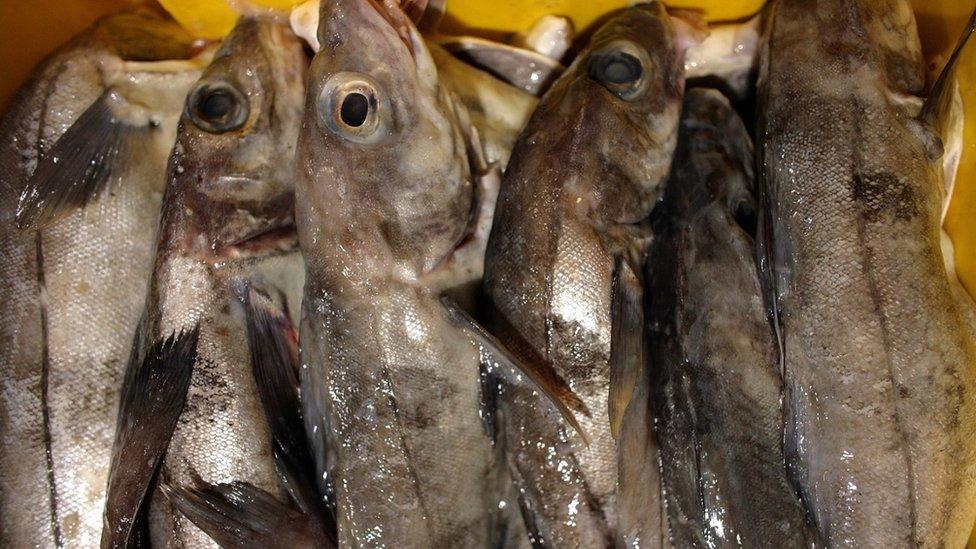
The UK is a member of the EU's Common Fisheries Policy
They trade freely inside the EU because we are all members of the Common Agricultural Policy (CAP) and Common Fisheries Policy (CFP) and so everyone gets the same subsidies and follows the same rules.
Once we leave the EU we won't be part of the CAP or the CFP. There also might be other industries or products which are not part of the deal - countries often have specific areas they want to protect like steel, pharmaceuticals or the health service.
What do businesses want in Brexit talks?
It is also true that even with a free trade agreement there can be border checks and other controls on goods entering and leaving the countries involved.
At the moment there are none within the EU, a fact of particular importance to the border between the Republic of Ireland and Northern Ireland.
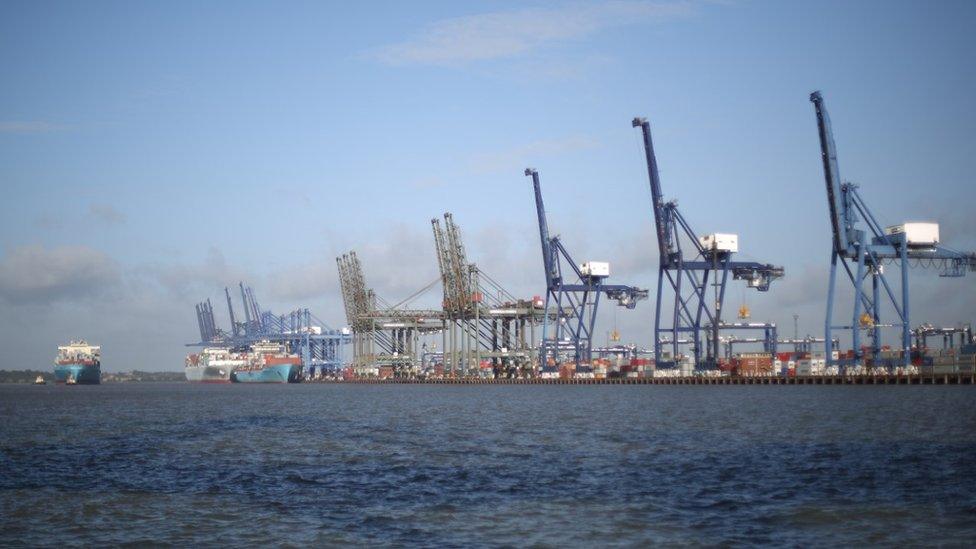
Trade deals can take years to negotiate
Also, almost 80% of the British economy is made up of service industries and often these are not covered by a free trade deal - and, even if they are, the so-called "non-tariff barriers" can be huge.
That is, for example, mutual recognition of regulations, legal differences, environmental standards, banking rules and all the rest.
We might get a great free trade deal - one which protects what we want to protect and gives us access to the EU's market for manufactured goods and services.
But it will all be the result of negotiations and they can take years, normally seven or more, and unless both sides agree to an extension we will have only two years after Article 50 is triggered to get a deal agreed.
Long negotiations
That is why the government says it is preparing for what happens if it does not get a deal, either because it runs out of time or the deal on offer is not worth having. That plan would mean relying on the rules of the WTO.
At the moment the UK and the rest of the EU apply WTO-agreed tariffs on other countries' exports, covering more than 5,000 categories of goods, from "apples to zinc oxide".
In theory we could renegotiate each of those tariffs but if that happened it could be a very long and messy series of negotiations.
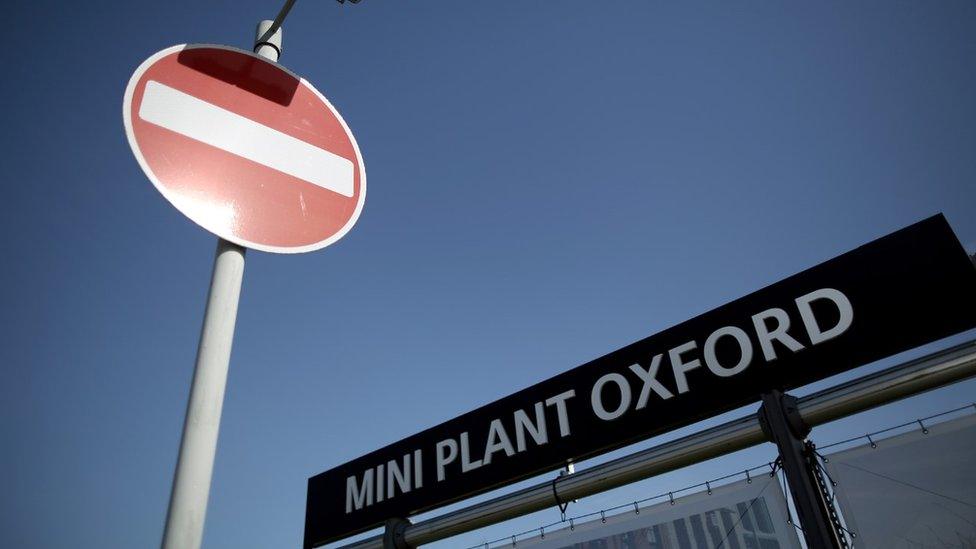
Car firms can ship components several times across borders
The best-case scenario is that we just inherit the same deal the EU has with the rest of the world, and change it later if we want to.
However, that means our exports to the EU, about 45% of all our exports, would face the same tariffs the rest of the world does when exporting to the EU.
These vary hugely depending on the industry, more than 40% on average for dairy products and 4% on average for transport equipment.
Some experts say that is perfectly manageable, others that it would be a huge hit for British industry.
Perhaps the worst-hit sectors would be food exporters and those whose supply chain is spread out across Europe.
Cars and aerospace firms, for example, can ship components several times across borders before finally fitting them into the finished product.
In theory, each time they moved between the UK and the rest of the EU, they would have to pay tariffs and face customs checks.
- Published14 August 2017
